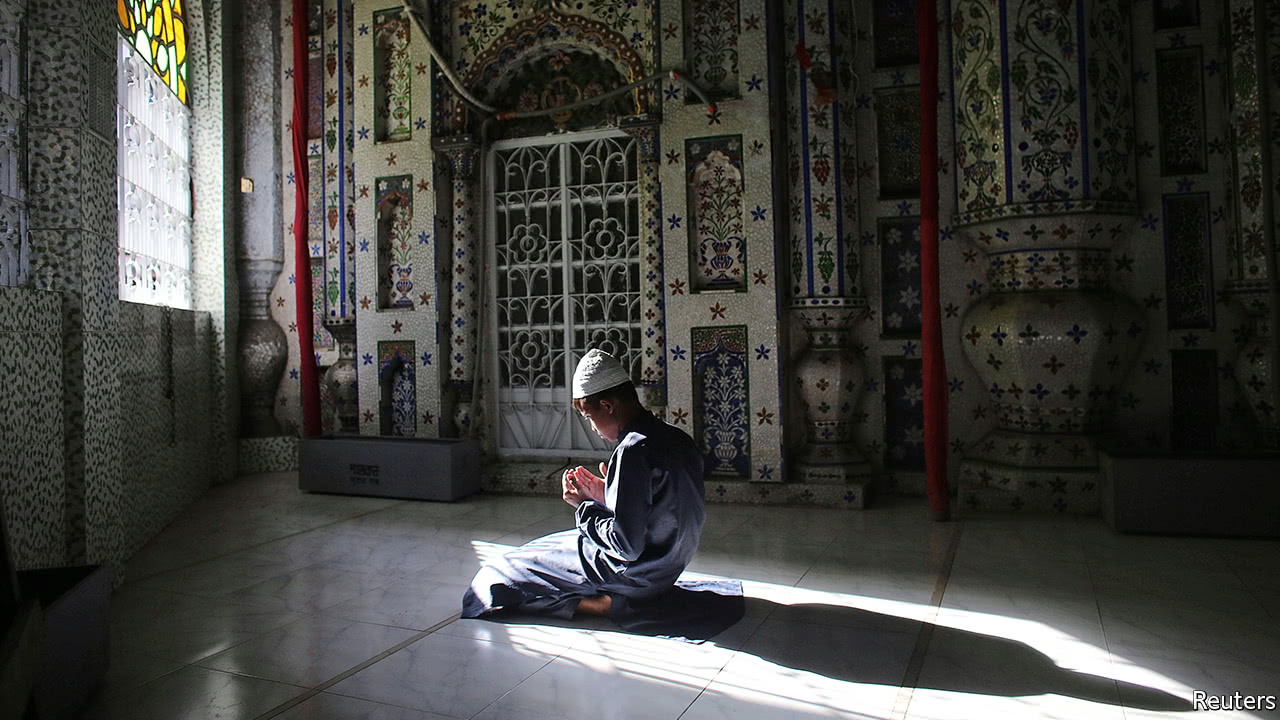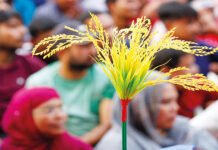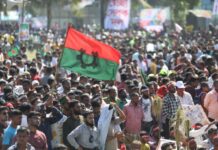Bangladesh’s government is pandering to Islamist zealots
Public statuary is paying the price

Opponents have long criticised the Awami League as “anti-Islam”. Mujibur Rahman, Bangladesh’s first president and Sheikh Hasina’s father, had presided over the drafting of a constitution that enshrined secularism as one of the country’s guiding principles, even though the vast majority of the population was Muslim. When a subsequent military strongman dropped secularism, Sheikh Hasina campaigned to restore it. She cheered on the courts as they eviscerated the biggest Islamic party, the Jamaat-e-Islami, and has campaigned tirelessly to undermine the Bangladesh Nationalist Party, the League’s main rival, which has typically been more sympathetic to religious causes.
Ballot-stripping
Although the election commission recently announced that it would start discussions with all political parties to ensure free and fair elections next year, most analysts assume that Sheikh Hasina will do whatever it takes to ensure she remains in power. Police continue to raid the homes of opposition politicians and bring charges against political activists.
Despite having hobbled the opposition, however, Sheikh Hasina seems to be becoming more sensitive to the taunts of her religious critics. The turning point, perhaps, was when hundreds of thousands of Hefazat supporters marched on Dhaka in 2013, demanding the hanging of atheist bloggers. The government refused to defend the bloggers, several of whom were killed by machete-wielding extremists; instead it brought charges against some of the bloggers for offending religious sentiment. It also set up a panel to police public commentary on Islam, but not other religions. The prime minister’s son, Sajeeb Wazed, explained, “We don’t want to be seen as atheists.”
To that end the government has quietly revised school textbooks, removing 17 poems that the Hefazat had deemed “atheist” and adding in a few more religious symbols. In March it passed legislation purporting to curb child marriage that included a loophole so big activists fear it will actually promote it. In April it said that the degrees issued by madrassas that do not follow the government curriculum will be deemed equivalent to a master’s degree from a state-backed institution, fulfilling one of the Hefazat’s long-standing demands. In effect, graduates of these “Qawmi” madrassas will now be eligible for government jobs, despite having been schooled almost exclusively in theology in classical Arabic.
Sheikh Hasina has also been courting Saudi Arabia, most notably by joining its coalition to confront Iran. Ties between the two countries had suffered during the assault on the Jamaat, which had championed an austere, Middle Eastern form of Islam. Saudi Arabia has resumed issuing visas to migrant workers from Bangladesh, who send home $3bn a year in remittances, almost on a par with Bangladesh’s total foreign aid. Bangladeshi officials say Saudi Arabia has promised $1bn to build 560 mosques—one in each town.
As it is, the number of mosques is growing. In the mid-1980s there was one mosque for every 750 people on average; now it is one for every 550. Since 2009, 50,000 privately funded mosques have sprung up, taking the total to 300,000. Qawmi madrassas are also proliferating: they now have 1.4m students, compared with around 5m in government-regulated madrassas. Polling commissioned by the government shows broad support for caning people caught drinking alcohol, even greater enthusiasm for Islamic banking and inheritance law and near-universal support for women covering their heads in public. Kasem bin Abubakar, a novelist who writes about young people resisting temptation and remaining true to the faith, is the country’s best-selling author.
The causes of this growing piety are the subject of some debate. The increasing number of Bangladeshis working in the Gulf may have something to do with it. So may rising levels of urbanisation and education, which have been associated with the spread of more doctrinaire forms of Islam in other countries. But it is hard to imagine that disillusion with electoral democracy and the secular authorities does not play a part.









